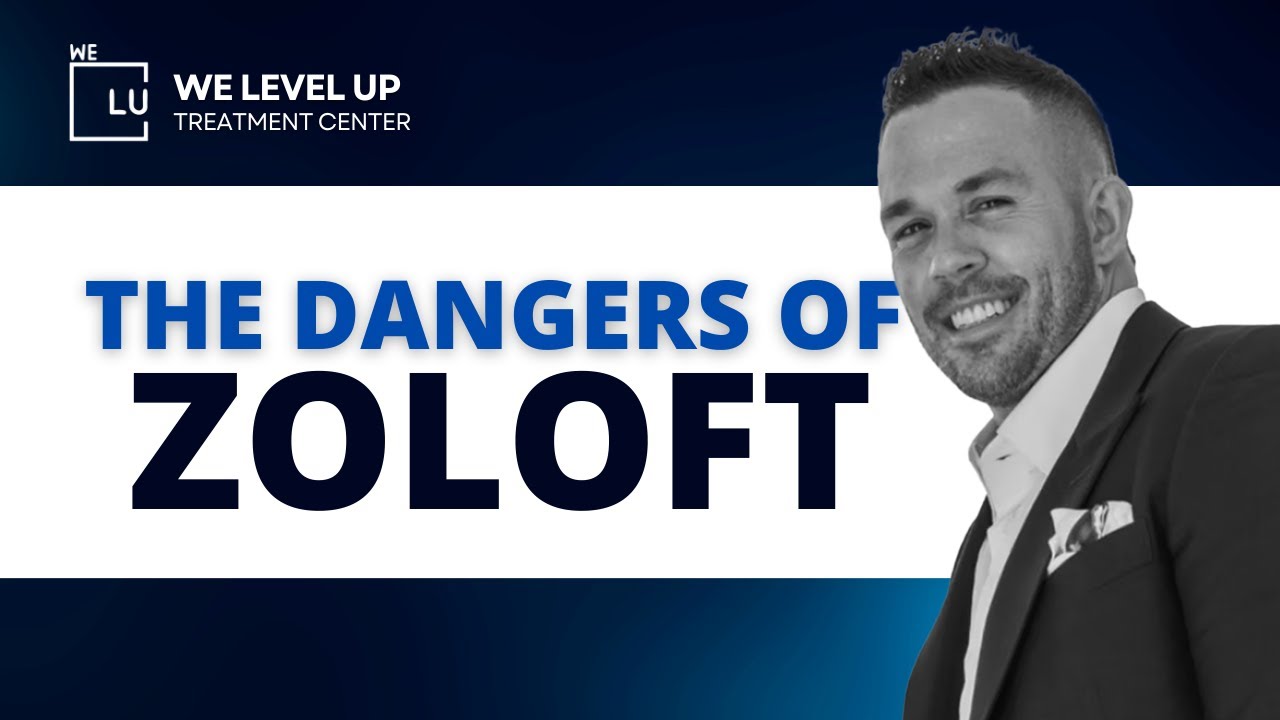Exploring this prescription, anticonvulsant Keppra side effects can reveal drug interaction warnings and withdrawal treatment choices.
Stopping Keppra suddenly can cause severe problems because stopping a seizure medicine suddenly can cause seizures that will not stop (status epilepticus). Moreover, the side effects of Keppra can include anxiety, memory problems, depression, and suicidal ideations.
Are you seeking support for Keppra side effects and withdrawal? The We Level Up Texas Treatment Center is ready to help. Call 24/7 for a consultation about the levetiracetam side effects in adults and detox treatment.
Keppra and Alcohol Dangerous Mix
Suicidal thoughts are already a potential side effect of Keppra alone, but combining it with alcohol can worsen the situation. Additionally, the combination raises the risk of liver damage, although rare with Keppra alone, especially with excessive alcohol consumption. If left untreated and alcohol use persists, liver damage can become life-threatening.
Furthermore, Keppra may lower alcohol tolerance, making just a few drinks more impactful and potentially leading to unintended risky actions.
Keppra Uses
Levetiracetam is an antiseizure prescription approved for use alone or with other medicines to control certain types of seizures, such as partial seizures, myoclonic seizures, or tonic-clonic seizures. It has been FDA-approved for 24 years and is available in multiple formulations under the brand names Keppra, Keppra XR, Elepsia XR, Spritam, and generics. [1]
Levetiracetam is available as:
- Liquid solution.
- Immediate- and extended-release tablets.
- And a tablet that must be dissolved on the tongue in a small amount of water.
An immediate-release form is dosed twice daily, and extended-release forms once daily. A therapeutic serum concentration is not established for Keppra, and dosage is guided by clinical response.
According to the National Institutes of Health (NIH), the efficacy of a dose of more than 3000 mg/day must still be fully proven. Some suggest that the dose can be increased up to 4000 mg /day in patients who have shown clear response but have occasional breakthrough seizures. However, there are some reports of seizure exacerbation with higher doses, and the physician should keep that in mind while using higher doses.
It is also used off-label sometimes for status epilepticus.
Dosage adjustment is generally not needed for hepatic impairment. However, there are reports that total body clearance of Keppra is reduced by half in severe liver disease(Child-Pugh C). Therefore, half of the recommended dose should be initiated in patients with severe liver cirrhosis. [2]
An interprofessional team involving the clinician, nurse, and pharmacist assisting and educating the patient with the administration and regular drug dosing will result in the best patient outcome. Nurses can conduct initial screening, monitor disease progression, and assist with epilepsy management with Keppra therapy.
Precautions with Keppra
Before Taking Keppra, Here are Critical Things You Need to Know and Follow:
Allergies
Advise your doctor or pharmacist if you have sensitivities or are allergic to Keppra. The product’s inactive components may result in allergic reactions or other problems.
Medical History
Before using this drug, discuss all of your medical history with your doctor or pharmacist; particular attention to renal illness or mental/emotional problems like depression is crucial.
Dizziness and Drowsiness
Especially in the first month of therapy, this medication may cause you to feel drowsy or lightheaded. Avoid doing things that need focus, such as operating machinery or driving. Consult your physician if you use marijuana, and limit your alcohol use.
Before Surgery
Before surgery, disclose to your doctor or dentist all the items you use, including over-the-counter, prescription, and herbal medications.
Older Adults Caution
Fall risk may increase in older persons due to heightened sensitivity to side effects such as drowsiness, vertigo, or loss of balance.
Pregnancy Consideration
Use this prescription during pregnancy only when critical. Discuss the risks and benefits with your doctor.
Keppra Drug Interactions
Keppra Drug Interactions
It’s crucial to inform your healthcare provider about all the medications, including prescription, over-the-counter, and herbal supplements, that you are taking to ensure the safe and effective use of Keppra.
- Alcohol: Combining Keppra with alcohol may increase the risk of side effects, including drowsiness and impaired coordination.
- Antacids: Certain antacids containing aluminum or magnesium may decrease the absorption of Keppra. It’s advisable to separate the administration of Keppra and antacids.
- Central Nervous System Depressants: Drugs that depress the central nervous system, such as benzodiazepines, opioids, or muscle relaxants, may enhance the sedative effects of Keppra.
- Oral Contraceptives: Keppra may affect the blood levels of hormonal contraceptives. Consult with your healthcare provider about potential adjustments.
- Warfarin: Keppra may influence the levels and effects of warfarin, an anticoagulant. Regular monitoring and possible dosage adjustments may be needed.
- Rifampin: Rifampin, an antibiotic, may reduce the effectiveness of Keppra. Close monitoring and potential dosage adjustments may be necessary.
- Phenytoin: Concurrent use of Keppra with phenytoin may alter the blood levels of both medications. Your doctor may need to adjust the doses accordingly.
- CNS Stimulants: Stimulants affecting the central nervous system, such as methylphenidate or amphetamines, may have an altered impact when combined with Keppra.
- Cimetidine: Cimetidine, used for stomach acid control, may increase the concentration of Keppra in the blood. Monitoring and dosage adjustments may be required.
- Valproic Acid: Concurrent use of Keppra with valproic acid may affect blood levels. Your healthcare provider may need to adjust the doses of both medications.
This list is not exhaustive; professional medical advice is recommended for personalized information.
Keppra Breastfeeding Warning
If the mother requires Keppra, it is not necessarily a reason to stop breastfeeding. However, clinicians should monitor exclusively breastfed infants for developmental milestones, drowsiness, and weight gain.
A study published by the National Center for Biotechnology Information (NCBI) indicates that Keppra might decrease some women’s maternal breast milk output. Therefore, maternal serum level monitoring and dosage adjustment are recommended in the early postpartum period if the mother was administered Keppra throughout pregnancy and breastfeeding. [2]
Manufacturer labeling indicates that the developmental and health benefits of breastfeeding should be evaluated, along with the mother’s clinical requirement for Keppra and adverse drug reactions in the breastfed infant. Keppra is excreted in breast milk, but infant serum drug levels are low. However, the Keppra concentration in milk can be high in some women and sometimes cause sedation in breastfed infants.

Skip To:
Learn More:
Keppra Side Effects in Adults
The most common side effects of Keppra include:
- Drowsiness.
- Weakness.
- Dizziness.
- Loss of coordination.
- Feeling tired.
- Irritability.
- Headache.
- Double vision.
- Infections.
- Mood changes.
- Behavior changes.
- Agitation.
- Anxiety.
- Depression.
- Uncontrolled movements.
- Unusual eye movements.
- Memory problems.
- Difficulty concentrating.
- Speech problems.
In cases of depression and suicidal thoughts, call emergency services or a healthcare professional immediately. If you’ve attempted suicide and you’re injured, dial 911 or your local emergency number. Ask someone else to call for you if you’re not alone.
Seek immediate medical attention if unexplained rash, fever, or swollen lymph nodes develop.

Side Effects of Weaning Off Keppra
People may quit using Keppra due to several causes, including the emergence of unfavorable adverse effects such as sleepiness, dizziness, or mood problems. Some people may discover that Keppra may not effectively manage their seizures or that other drugs work better for their particular situation. Furthermore, if an individual no longer needs antiepileptic medication or chooses to treat their medical condition differently, they may stop using Keppra with the advice of their healthcare professional.
Other reasons for discontinuation may include the cost of treatment. There is also the wish to feel ‘cured’ and to avoid the inconvenience and stigma of taking drugs daily.
Everyone on Keppra must know that stopping the medication abruptly is not advisable. If you plan to discontinue your therapy with Keppra, you should advise your doctor so they can guide you on how to adjust appropriately.
Here are the most common Keppra withdrawal symptoms when the therapy is discontinued abruptly:
- Seizure recurrence.
- Mood swings.
- Irritability.
- Agitation.
- Anxiety.
- Insomnia.
- Fatigue.
- Dizziness.
- Nausea.
- Headache.
- Difficulty concentrating.
- Memory problems.
- Behavioral changes.
Drug discontinuation may be considered after a minimum of two years without a seizure. The risk of recurrence decreases with every additional year of seizure freedom. However, each person’s experience varies. An individualized approach should now replace it and thoroughly examine each patient’s risks and benefits. In patients with an increased risk of seizure recurrence, it is advisable to wait longer than two years before considering antiepileptic drug discontinuation.
How Long Do Side Effects Last After Stopping Keppra?
Patients need to understand the potential problems that can occur after stopping treatment, particularly the consequences of relapse.
The antiepileptic drug weaning period may be associated with significant anxiety. This can be regarding seizure recurrence, restricted social activities, and a possible effect on employment and driving.
| Time After Stopping Keppra | Potential Side Effects |
|---|---|
| 1-2 Days | Seizure recurrence, irritability, mood swings |
| 3-7 Days | Agitation, anxiety, insomnia |
| 1-2 Weeks | Fatigue, dizziness, nausea |
| 2-4 Weeks | Headache, difficulty concentrating, memory problems |
| Beyond 4 Weeks | Gradual resolution of side effects, individual variation |
What are the Long-Term Side Effects of Levetiracetam?
Long-term use of Keppra, like any medication, may be associated with specific side effects that individuals may experience over an extended period.
The most common long-term side effects of Keppra include:
- Memory problems.
- Behavior changes.
- Mood swings.
- Agitation.
- Difficulty concentrating.
- Increased risk of infections.
- Decreased bone mineral density.
- Kidney-related issues.
- Anemia.
- Weight loss.
Do Keppra Side Effects Go Away?
When you use Keppra for the first 4 weeks, the adverse effects usually go away as your body becomes used to the drug. Nonetheless, contacting your doctor immediately is critical if adverse effects continue or intensify.
Get Help. Get Better. Get Your Life Back.
Searching for Accredited Drug and Alcohol Rehab Centers Near You? We Level Up Texas Is Opening Soon!
Even if you have failed previously and relapsed, or are in the middle of a difficult crisis, we stand ready to support you. Our trusted behavioral health specialists will not give up on you. When you feel ready or just want someone to speak to about therapy alternatives to change your life call us. Even if we cannot assist you, we will lead you to wherever you can get support. There is no obligation. Call our network hotline today.
FREE Addiction Hotline – Call 24/7Can You Overdose on Keppra?
In overdose, Keppra is sedating and causes respiratory depression. However, recovery is rapid with supportive care. Keppra overdose symptoms to watch out for include:
- Extreme drowsiness.
- Agitation.
- Loss of consciousness.
- Difficulty breathing.
- Confusion.
- Slurred speech.
- Weakness.
- Uncontrolled movements.
- Seizures (more frequent or severe).
- Coma.
Is Keppra Addictive?
Although Keppra is not usually thought to be addictive. However, every prescription medication has the potential to be misused.
Keppra drug abuse and misuse signs include:
- Taking higher doses than prescribed.
- Using Keppra without a medical need.
- Continued use despite negative consequences.
- Seeking Keppra from multiple doctors or sources.
- Changes in social or recreational activities due to Keppra use.
- Spending a significant amount of time obtaining or using Keppra.
- Neglecting responsibilities at work, school, or home.
- Engaging in risky behaviors while under the influence of Keppra.
- Experiencing withdrawal symptoms when not using Keppra.
- Hiding or lying about using Keppra.
We Level Up Texas offers support for people who struggle with prescription drug abuse. The needs of each patient are specific and personalized, as we aim to provide comprehensive support for mental health, addiction, and dual diagnosis treatment. Patients in our residential therapy programs will live comfortably within the facility during this crucial and fragile time.
This supportive environment is designed to give patients 24-hour care for sobriety, removing temptations for relapse and applying an air of recovery into every component of the treatment timeline. We Level Up Texas Treatment Center finds that when patients live in a supportive community, especially during their early recovery process, they can truly focus on what matters most: their recovery.
Make this your opportunity to reclaim your life. Call today to speak with one of our treatment specialists. A personalized detox plan ensures safety and well-being, with medical monitoring allowing adjustments to address health concerns. This supportive process is crucial as individuals begin their journey to recovery.
Prescription Drug Addiction Risk Factors
The most common risk factors of prescription drug abuse include:
- Previous substance abuse issues increase the risk.
- Co-occurring psychiatric disorders, including anxiety attacks and depression.
- A family history of addiction.
- Influence of friends or family members with substance abuse.
- Easy access to prescription drugs.
- Influence from peers to misuse prescription medications.
- Prescription medication is used for pain relief over an extended period.
- The danger of experimenting is higher among adolescents and young adults.
- Prescription medication addiction may be more common in women.
- Low knowledge about the risks of prescribed medications.
Get resources for prescription drug addiction rehab counseling that works TODAY. Discover professional help from We Level Up Texas’ addiction and mental health therapists. Start getting support with a free call to our addiction hotline.
Opening Soon! First-Class Facilities & Amenities
World-Class High-Quality Addiction & Mental Health Rehabilitation Treatment
Coming Soon! Rehab Centers TourRenowned Addiction Centers. Serene Private Facilities. Inpatient Rehab Programs Vary.
FREE Addiction Hotline – Call 24/7Proven recovery success experience, backed by a Team with History of:
15+
Years of Unified Experience
100s
5-Star Reviews Across Our Centers
10K
Recovery Success Stories Across Our Network
- Low Patient to Therapist Ratio
- Onsite Medical Detox Center
- Comprehensive Dual-Diagnosis Treatment
- Complimentary Family & Alumni Programs
- Coaching, Recovery & Personal Development Events
Find the Support You Need at We Level Up Texas Detox and Dual Diagnosis Treatment Center
We Level Up TX rehab supports several levels of care to ensure the best possible outcome for every patient who enters our doors. From an intensive and more supportive atmosphere for those in the early days of recovery to a comfortable residential-style living dynamic upon completion of addiction to prescription drug detox, we are here to help guide you down the safe and results-based path to your sobriety.
Once detox is complete, a new treatment doorway opens up, referred to as a residential level of care. Our residential care program slowly and effectively introduces the individual into an atmosphere of therapeutic growth, marked by Master’s level therapists, clinicians, group counselors, psychiatrists, and a community of like-minded individuals with the same aim: to attain sobriety and live a great life.
With a tailored program targeting prescription drug usage, the knowledgeable We Level Up Texas staff can help you. Using evidence-based therapies and compassionate care in a modern environment, we prioritize your safety and well-being. Here is where your healing starts. Contact us today with a free call 24/7.
The duration of the tapering period of Keppra varies greatly. It depends on multiple factors, such as:
- The number of antiepileptic medications.
- Starting dose.
- Previous seizure frequency.
- Seizure type and associated risk of injury.
- Risk of withdrawal seizures with some antiepileptic drugs.
- Non-driving period.
Patients on multiple antiepileptic drugs, including Keppra and benzodiazepines, need to withdraw them sequentially. A neurologist should ideally provide the tapering schedule after discussing all relevant factors with the patient. The patient’s needs and preferences will also influence the taper duration. A slow taper allows observation and helps to document the minimally effective doses in case the seizures recur. However, a slow taper prolongs the non-driving period.
Prescription medication use as a coping strategy for stress, anxiety, or underlying mental health disorders is mainly influenced by psychological variables. The attraction of instantaneous release from psychological pain or the ambition to improve cognitive function may lead people to abuse. A further contributing reason to the rising incidence of addiction is sociocultural issues, such as the normalization of prescription drug usage and the false belief that these drugs are safe by nature because they are legally prescribed.
We Level Up Texas detox center offers proper care with a 24-hour medical staff to support your healing through our medication-assisted treatment program. Call us immediately to speak with a therapy expert and reclaim your life.
Speak with a We Level Up Texas treatment expert if you need support.

Get a free rehab insurance check without any obligation.
Opening Soon! World-class, Accredited, Anticipated 5-Star Reviewed, Effective Addiction & Mental Health Programs. Complete Behavioral Health Inpatient Rehab, Detox plus Co-occuring Disorders Therapy.
FREE Addiction Hotline – Call 24/7End the Addiction Pain. End the Emotional Rollercoaster. Get Your Life Back. Start Drug, Alcohol & Dual Diagnosis Mental Health Treatment Now. Get Free No-obligation Guidance by Substance Abuse Specialists Who Understand Addiction & Mental Health Recovery & Know How to Help.
Prescription Drug Abuse and Sobriety Story — A Testimonial Video
Start a New Life
Begin with a free call to an addiction & behavioral health treatment advisor. Learn more about our dual-diagnosis programs. The We Level Up treatment center network delivers recovery programs that vary by each treatment facility. Call to learn more.
- Personalized Care
- Caring Accountable Staff
- World-class Amenities
- Licensed & Accredited
- Renowned w/ 100s 5-Star Reviews
We’ll Call You
Search We Level Up Texas Keppra Side Effects, Detox Topics, and Resources
Sources
- FDA warns of a rare but severe drug reaction to the antiseizure medicines levetiracetam (Keppra, Keppra XR, Elepsia XR, Spritam) and clobazam (Onfi, Sympazan) – Food and Drug Administration (FDA)
- Keppra Side Effects Study: Kumar A, Maini K, Kadian R. Levetiracetam. [Updated 2023 Dec 3]. In: StatPearls [Internet]. Treasure Island (FL): StatPearls Publishing; 2023 Jan-. Available from: https://www.ncbi.nlm.nih.gov/books/NBK499890/
- Keppra Side Effects Study: White JR, Walczak TS, Leppik IE, Rarick J, Tran T, Beniak TE, Matchinsky DJ, Gumnit RJ. Discontinuation of levetiracetam because of behavioral side effects: a case-control study. Neurology. 2003 Nov 11;61(9):1218-21. Doi: 10.1212/01.wnl.0000091865.46063.67. PMID: 14610123.
- Barrueto F Jr, Williams K, Howland MA, Hoffman RS, Nelson LS. A case of levetiracetam (Keppra) poisoning with clinical and toxicokinetic data. J Toxicol Clin Toxicol. 2002;40(7):881-4. Doi: 10.1081/clt-120016959. PMID: 12507057.
- Sarid-Segal O, Piechniczek-Buczek J, Knapp C, Afshar M, Devine E, Sickles L, Uwodukunda E, Richambault. C, Koplow J, Ciraulo D. The effects of levetiracetam on alcohol consumption in alcohol-dependent subjects: an open-label study. Am J Drug Alcohol Abuse. 2008;34(4):441-7. Doi: 10.1080/00952990802082180. PMID: 18584574; PMCID: PMC5377927.
- What are the long term side effects of levetiracetam? Mbizvo GK, Dixon P, Hutton JL, Marson AG. The adverse effects profile of levetiracetam in epilepsy: a more detailed look. Int J Neurosci. 2014 Sep;124(9):627-34. Doi: 10.3109/00207454.2013.866951. Epub 2013 Dec 18. PMID: 24256446. Related research for levetiracetam side effects in elderly; side effects for Keppra; Keppra long term side effects; side effects Keppra.
- Keppra Side Effects Study: KEPPRA® (levetiracetam) – accessdata.fda.gov – Food and Drug Administration (FDA)
- Keppra Side Effects Study: Levetiracetam: MedlinePlus Drug Information – MedlinePlus (.gov)
- KEPPRA- levetiracetam tablet, film-coated & KEPPRA- levetiracetam solution – National Institutes of Health (NIH)
- LEVETIRACETAM INJ, SOLN – VA Formulary Advisor – Veterans Affairs (.gov)






